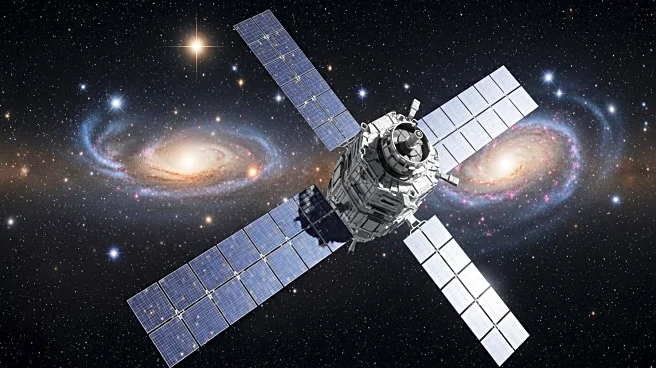What's Happening?
The U.S. Space Force is taking significant steps to make its future space programs more accessible to foreign military sales (FMS). At the recent Air and Space Force Association’s Air, Space and Cyber Conference, Maj. Gen. Stephen Purdy announced plans for the next generation of space situational awareness satellites to be refuelable and unclassified, marking a departure from the secretive nature of the current Geosynchronous Space Situational Awareness Program (GSSAP). The new program, known as RG-XX, aims to be FMS-accessible, allowing partner nations to potentially engage in FMS agreements even before the U.S. program is fully funded. This approach is intended to provide maximum flexibility in contracting strategies, enabling partner nations to act swiftly if they have available funds.
Why It's Important?
This initiative by the U.S. Space Force could significantly impact international defense collaborations and the global space industry. By making space programs FMS-friendly, the U.S. is opening up opportunities for allied nations to participate in cutting-edge space technology development. This could lead to increased international cooperation and shared technological advancements. The move also reflects a strategic shift in how the U.S. engages with its allies, potentially leading to a more integrated approach to space defense. For the U.S., this could mean enhanced diplomatic ties and a stronger collective defense posture, while partner nations gain access to advanced space capabilities.
What's Next?
The Space Force is expected to continue refining its FMS strategies, with the Space Systems Command (SSC) already supporting numerous FMS cases. The SSC is preparing for a significant increase in FMS activities, with the number of cases expected to double annually. Future discussions may involve providing FMS versions of space-based connectivity networks and other advanced technologies. The focus will likely remain on fostering international partnerships, particularly with nations in the Indo-Pacific, European, and Southern Command areas of responsibility.
Beyond the Headlines
The decision to make space programs FMS-friendly could have long-term implications for global space policy and security. It may lead to a shift in how space technology is developed and shared internationally, potentially setting new standards for transparency and collaboration. This approach could also influence how other nations develop their space programs, possibly leading to a more cooperative global space environment.








